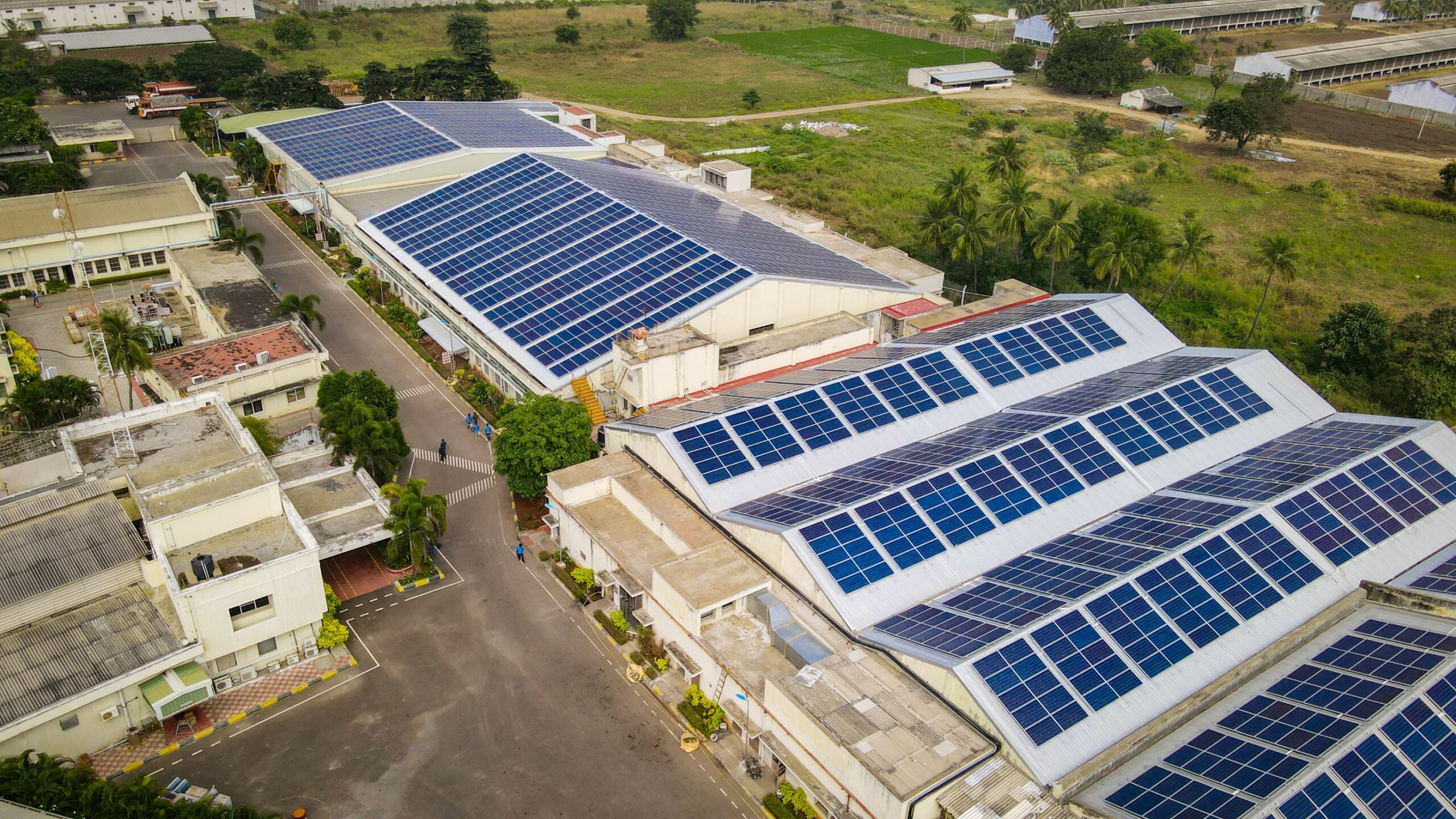SOLAR POWER SOLUTION FOR INDUSTRIAL, COMMERCIAL & INSTITUTIONAL USERS
Lower Electricity Bill, Reduce Carbon Footprint
Solar power offers significant benefits for industrial, commercial and institutional users. They reduce electricity costs by generating clean, renewable energy from the sun, which can lower utility bills over time. Businesses can also take advantage of government incentives and tax rebates to offset installation costs. Solar power systems increase energy independence, making businesses less reliant on fluctuating energy prices. Additionally, adopting solar energy improves a company’s sustainability profile, helping them meet corporate social responsibility goals. With low maintenance and long-term reliability, solar power offers an eco-friendly, cost-effective solution that can boost a company’s brand while contributing to environmental conservation.
Steps involved in Commercial Solar Installation Process
- Site Evaluation: Before any installation begins, a thorough site evaluation is crucial. This includes legal reviews to ensure permissions, determining grid connection points, and evaluating the property for shade, structure, and geological suitability.
- System Design: Following site evaluation, the system design phase formalizes the installation plans. Detailed drawings outline panel placement for optimal sunlight capture, whether on rooftops, ground mounts, or solar carports.
- Construction: Construction timelines vary based on project complexity. Smaller rooftop installations can be completed in 2-3 weeks, while larger projects may take few months. Careful planning minimizes disruptions, but businesses should prepare for temporary adjustments.
- Commissioning: Once construction finishes, commissioning ensures the system aligns with design specifications. This step includes utility approval to connect the solar installation to the local power grid, marking the start of clean energy production.
- Operation and Maintenance (O&M): Proper maintenance enhances system longevity and efficiency. O&M responsibilities are outlined in the contract, typically covering annual inspections, warranty repairs, performance monitoring, and occasional cleaning. Choosing a reputable installer with strong O&M support ensures continued system performance and optimal energy generation.
By following these steps meticulously, businesses can efficiently transition to solar energy, enjoying long-term financial savings and environmental benefits.
Factors Affecting the timeline of a commercial solar panel installation
- System Size and Complexity: The size and complexity of the solar panel system directly impact installation timelines. Larger systems with intricate configurations require more design, installation, and testing time compared to smaller setups.
- Permitting and Approvals: Obtaining permits from local authorities and approvals from utility companies can vary in duration. Some jurisdictions streamline processes, while others may have longer approval timelines, affecting overall installation schedules.
- Site Preparation: The condition of the property’s roof and necessary site preparations can extend the timeline. Repairs or reinforcement of roofs and clearing obstacles for optimal sunlight exposure may delay installation.
- Weather Conditions: Weather plays a significant role, especially for rooftop installations. Inclement weather like heavy rain, storms, or extreme temperatures can postpone installation for safety reasons, impacting the schedule.
- Grid Connection and Utility Interactions: Connecting the system to the utility grid involves agreements, meter installations, and inspections, which can introduce additional steps and time delays.
- Contractor Availability: The availability and workload of the installation contractor affect timelines. High demand or simultaneous projects may extend installation schedules. Early discussions with contractors can clarify timelines.
- Customisation and Project Specifics: Custom features or unique project requirements, such as specialized mounting systems or infrastructure integration, may require additional time to plan and implement.
- Financing and Administrative Processes: Timelines are influenced by the duration of financing approvals and administrative tasks related to incentive applications or grants. Documentation and verification processes can extend the installation timeline.
Benefits of solar power installation
We provide best of the class solutions in terms of Solar Energy !
Choosing commercial solar panels can significantly benefit your operations and finances in several ways:
- Cost Reduction: Commercial solar panels can slash your electricity bills by up to 75%, freeing up funds for business expansion and other investments.
- Technological Advancements: GSE Renewable Energy’s modern solar panels feature advanced efficiency and monitoring tech, maximizing energy production and system efficiency through innovation.
- Environmental Sustainability: Choosing solar power shows commitment to sustainability, reducing carbon footprint and enhancing business reputation.
- Financial Savings: Solar panel installation offers strong financial returns with incentives like tax credits and rebates, ensuring long-term financial benefits beyond operational savings.
- Long-Term Investment: Solar power is a renewable energy source that provides stable energy costs over the long term, shielding your business from volatile energy prices.
Installing commercial solar panels in India with SUNERZY offers significant cost savings and sustainability benefits for businesses. We provide solar solutions from consultation to post-installation support, leveraging advanced technology and tax incentives to maximize environmental impact and savings. SUNERZY ensures seamless transitions and top-notch service, making solar adoption a strategic and rewarding investment. Contact us today for quote estimation, guiding your business towards a greener future.
This move towards renewable energy signifies a major step towards a greener and more sustainable future for India’s commercial sector.


